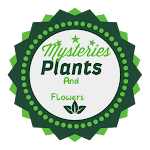Euphorbia hirta is used to treat breathing disorders, dengue fever, digestive problems, severe diarrhea, gonorrhea and tumors, but there is no scientific evidence to support these uses.
1.The plant is used to treat asthma, bronchitis, coughs, hay fever, intestinal worms and other conditions, but there is no scientific evidence to support these uses.
2.The plant may cause side effects such as mouth nausea and vomiting when taken orally, and skin irritation or allergic reactions when applied topically.
There is no reliable information about the safety of Euphorbia hirta, especially for pregnant or breastfeeding women.
3.The plant may interact with other medications, but there is no specific information available.
4.The plant has been found to have antifilarial properties, but the exact mechanism of action is unknown.
5.The plant has been found to be effective against Onchocerca volvulus microfilariae, which is the second major cause of blindness in the world.
6.The plant has been found to be less toxic to monkey kidney cell lines compared to other extracts.
7.The plant has been found to have antimicrobial properties, but the exact mechanism of action is unknown.
8.The plant has been used for treating various diseases, both infectious and non-infectious, for centuries, but its effectiveness has not been scientifically proven.

